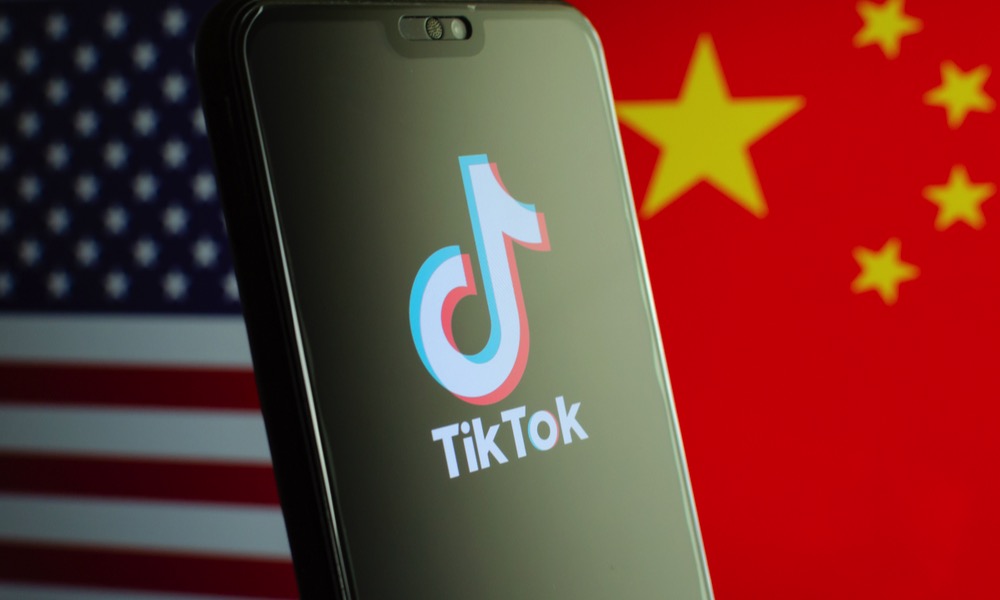TikTok Could Soon Be Banned in the US
 Credit: Ascannio / Shutterstock
Credit: Ascannio / Shutterstock
Toggle Dark Mode
While several US states have experimented with TikTok bans at varying levels, the US federal government has officially taken the first big step to crack down on Chinese-owned social media services.
Today, the US House of Representatives voted overwhelmingly 352-65 in favor of a bill titled Protecting Americans From Foreign Adversary Controlled Applications Act. If it’s ultimately signed into law, this could effectively block TikTok from being available on mobile devices in the US, potentially disrupting the daily routines and entertainment of millions of TikTok users.
While the bill still has to get through the US Senate, where it could be stopped in its tracks, President Joe Biden has confirmed that he’s ready to sign it when and if it lands on his desk.
The US government has long considered TikTok a potential threat to national security. In June 2022, federal Communications Commissioner (FCC) Brendan Carr called for Apple and Google to voluntarily remove it from their respective app marketplaces, describing it as a “sophisticated surveillance tool” for the Chinese government.
Six months later, the US House of Representatives banned TikTok from being installed on all government devices, expressing concern that it was harvesting data on US users and storing it on servers in China. This action mirrors similar bans issued by governments in several other countries, including Canada, Taiwan, Australia, the European Union, New Zealand, and the UK, underscoring the global concern over TikTok’s data practices.
Since Congress’s December 2022 decision only affected devices owned by the federal government, several states have entered the fray with their own prohibitions for state employees. However, Montana went a big step further when it passed legislation to block TikTok for everyone in the state by ordering Apple and Google to remove it from the App Store and Play Store for users in that state. While it’s unclear how the two tech giants would have accomplished this, they never had to; a US District Judge blocked the ban before it came into effect, declaring it an overreach by the state and a possible First Amendment violation.
Unlike Montana, it’s well within the purview of Congress to pass laws on matters of foreign affairs. However, federal courts will undoubtedly have to rule upon similar First Amendment issues over this latest bill, since it’s almost certainly to be challenged. In addition to opposition from TikTok users themselves, the American Civil Liberties Union (ACLU) has voiced its objections, arguing that the act suppresses free speech.
Meanwhile, former President Donald Trump, who strongly opposed “untrusted” Chinese apps when he was in office — including TikTok — weighed in on Truth Social opposing the latest government action as clearing the field for Meta and Facebook, which he considers far more dangerous.
If you get rid of TikTok, Facebook and Zuckerschmuck will double their business. I don’t want Facebook, who cheated in the last Election, doing better. They are a true Enemy of the People! Donald Trump
However, the government’s position is that this act isn’t about speech but rather “foreign adversary control.” The bill would allow TikTok to keep operating in the US if Chinese parent company ByteDance sells it off — and it even gives ByteDance five months to do so before the ban comes into effect. Should the bill pass and the clock expire, Apple and Google would be prohibited from making TikTok available in the US, effectively killing the mobile platform.
Representatives emphasize that this act isn’t so much about banning TikTok as forcing ByteDance to sell it to a less adversarial company.
Nevertheless, TikTok considers it a ban and feels that Congress is trying to rush it through to that end. In a statement to the media, company spokesperson Michael Hughes criticized the House’s process and expressed hope that the Senate will be more reasonable.
This process was secret and the bill was jammed through for one reason: it’s a ban. We are hopeful that the Senate will consider the facts, listen to their constituents, and realize the impact on the economy, 7 million small businesses, and the 170 million Americans who use our service. TikTok spokesperson Michael Hughes
What will happen in the Senate is anybody’s guess. Axios notes that at least one Senator, Rand Paul (R-KY), considers the legislation unconstitutional and will block any attempts to fast-track it. However, the top two senators on the Intelligence Committee, Senators Mark Warner (D-VA) and Marco Rubio (R-FL), issued a statement today supporting the bill, despite having their own legislation on the table to try and address national security concerns regarding TikTok.
We were encouraged by today’s strong bipartisan vote in the House of Representatives, and look forward to working together to get this bill passed through the Senate and signed into law. US Senators Mark Warner and Marco Rubio
That strong support will undoubtedly help, but despite its rapid advancement through the House, there’s a good chance it will get bogged down in the Senate. Further, even if it ultimately passes, it’s sure to be challenged in the courts before the ink is even dry on President Biden’s signature.







